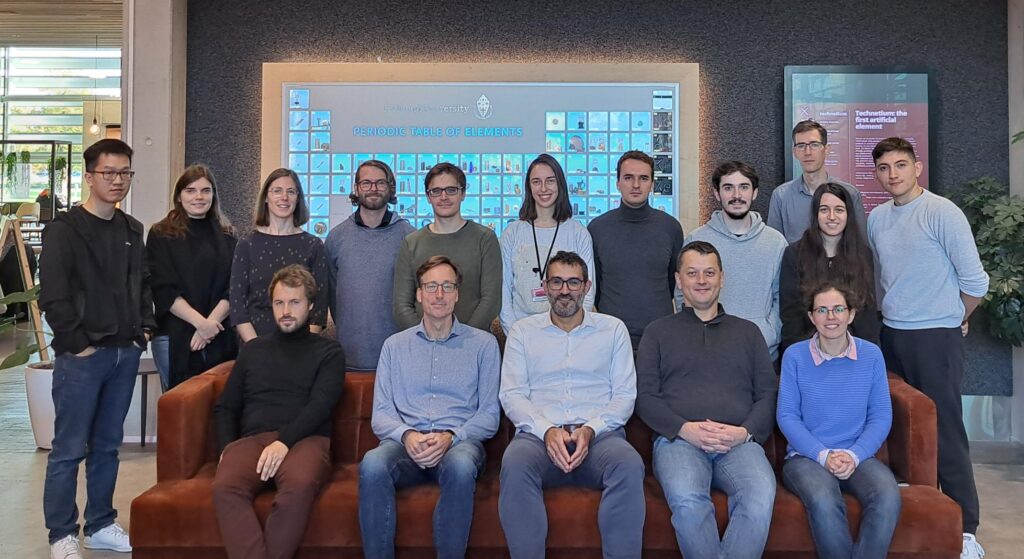The 8th General Assembly meeting, hosted by the Radboud University, Institute for Molecules and Materials, took place in Nijmegen on the 15th-16th
of November 2022. The meeting brought together 20 participants from all partners to discuss the progress towards the development of a new type
of chemical reactor inspired by the way in which living systems manage to modulate catalytic activity.
Wilhelm Huck and his team from Radboud University Nijmegen (RU) opened the meeting, welcoming all partners. To start with the programme of Day 1, Emily Rose Ciscato from accelCH presented the overall status of the project, leading a discussion between partners on the positive feedback and suggestions for research avenues received from the European Commission and external experts who evaluated the project’s progress following the last project meeting held in June 2022.
The rest of the day was fully dedicated to research updates from all scientific work packages, starting with presentations from Gonen Ashkenasy (BGU) on his group’s progress with nucleic-acid-peptide chimeras and nucleopeptide replication networks, that were also presented in the recent publication ‘The Systems Chemistry of Nucleic-acid-Peptide Networks’ and at the GRC conference on Systems Chemistry earlier this year. Still in the systems chemistry area, Andrés de la Escosura, Marcos Sanz and Alonso Puente (UAM) presented their group’s latest progress including preliminary results in achieving controlled molecular
assembly-disassembly with new techniques. Showcasing their most recent publication with contributions from the RU team ‘Strategies for Transferring Photobiocatalysis to Continuous Flow Exemplified by Photodecarboxylation of Fatty Acids’, Stefan Simić and Mathias Pickl (UG) discussed their progress in bio- and organo-catalysis, followed by Bartosz Lewandowski and Jonas Rackl (ETH), who presented their progress and new research avenues in chemoenzymatic cascade reactions. Tao Zhou and Miglė Jakštaitė (RU) presented their computational and lab-based approaches to cascade reactions, leading into an update on the latest microfluidic device prototypes by Elwin Vrouwe (MICRONIT).
The consortium closed the first day full of presentations with a brief overview of the project’s innovation management approach and the key exploitable innovations identified so far by the partners.

For the second block of the day, all partners participated in a quiz led by accelCH while reminding everyone of the dissemination process in place for the project and taking up the ideas for communication and dissemination collected during the previous GA in Madrid.
The productive catch-up finished with a wrap-up on the work plan for the next months and with new ideas for upcoming conference participations, outreach activities and possibilities for the next project-wide meeting.
